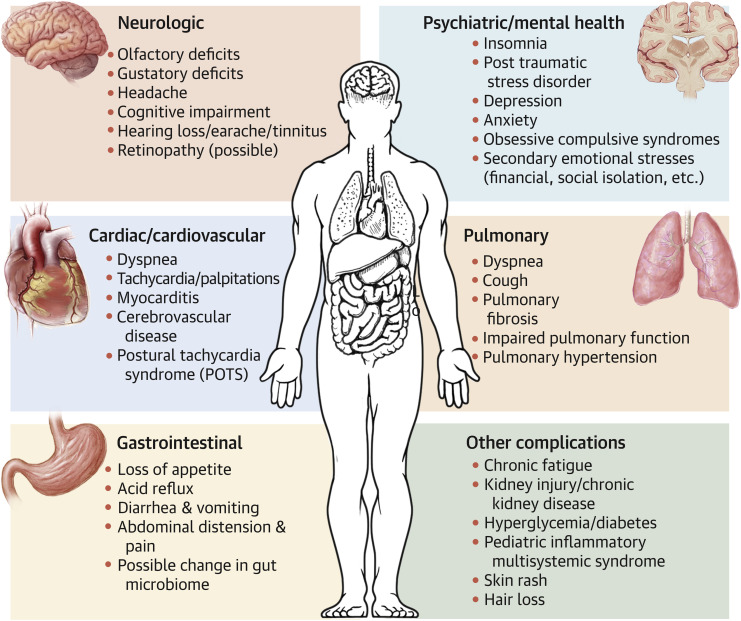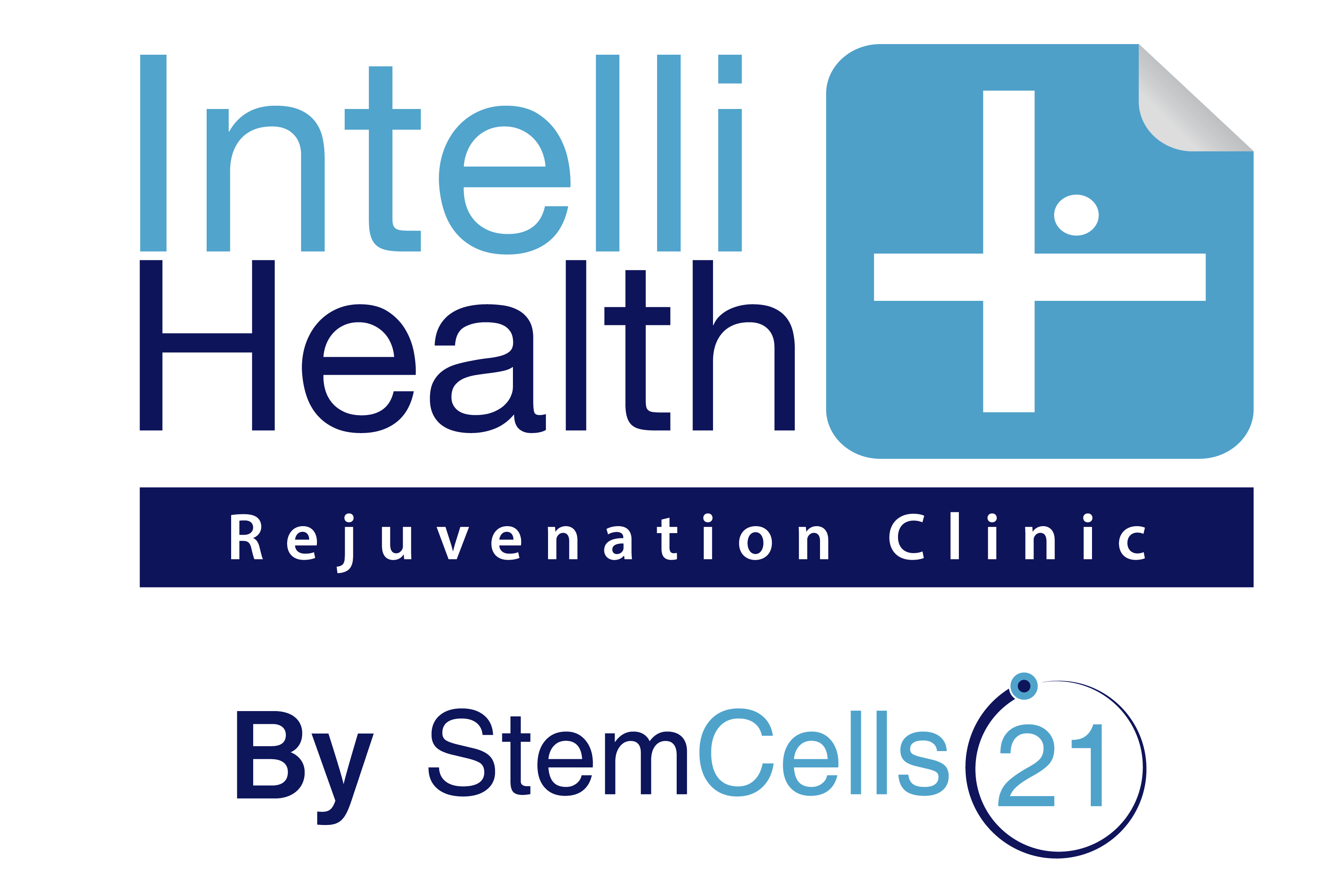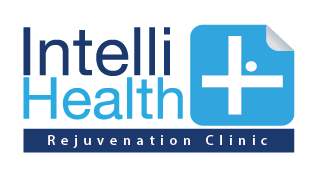Long-Term Effects of Coronavirus
Living with Long COVID
If you have recovered from COVID-19 but are still experiencing some symptoms, you could have what is known as post-COVID condition.This is also referred to as “long COVID”
Patients with COVID-19 might experience a wide variety of signs and symptoms, hinging upon disease severity and their pre-existing health conditions. If you have recovered from COVID-19 but are still experiencing some symptoms, you could have what is known as post-COVID condition.This is also referred to as “long COVID”
How long it takes to recover from COVID-19 is different for everybody. Many people feel better in a few days or weeks and most will make a full recovery within 12 weeks, but for some people, symptoms can last longer. The chances of having long-term symptoms does not seem to be linked to how ill you are when you first get COVID-19. People who had mild symptoms at first can still have long-term problems.
Long Covid as symptoms that continue for more than 12 weeks after an infection which cannot be explained by another cause.

Common long COVID symptoms
There are lots of symptoms you can have after a COVID-19 infection:
- Extreme tiredness (fatigue)
- Shortness of breath
- Chest pain or tightness
- Problems with memory and concentration (“brain fog”)
- Difficulty sleeping (insomnia)
- Heart palpitations
- Dizziness
- Pins and Needles
- Joint pain & Muscle pain
- Depression and anxiety
- Tinnitus, earaches
- Feeling sick, diarrhoea,
- Stomach aches, loss of appetite
- A high temperature, cough, headaches, sore throat, changes to sense of smell or taste
- Rashes
Patient surveys have identified tens and even hundreds of other symptoms. A large study by University College London (UCL) identified 200 symptoms affecting 10 organ systems.
These include hallucinations, insomnia, hearing and vision changes, short-term memory loss and speech and language issues. Others have reported gastro-intestinal and bladder problems, changes to periods and skin conditions.
The severity of symptoms varies, but many have been left unable to perform tasks like showering or remembering words. However these symptoms can have other causes too.
ONS research published in September 2021 found 0.5% of people who tested negative for coronavirus had at least one symptom that lasted for three months, compared to 3% who tested positive.
Children with COVID-19
Children are less likely than adults to catch Covid and are therefore less likely to develop long Covid – but some still do.
However, in August 2021 leading experts said they were reassured about the scale of long Covid in young people after the biggest study in the world showed persistent symptoms were less common than feared. Some early estimates had suggested as many as half of all children who caught coronavirus would develop long Covid.
They surveyed 11- to 17-year-olds testing positive for coronavirus in England between September and March. The research suggests somewhere between 2% and 14% still had symptoms caused by Covid 15 weeks later.
A team of researchers, led by the Great Ormond Street Institute of Child Health, investigated more than 200,000 positive cases among 11 to 17-year-olds between September 2019 and March 2020. They think that between 4,000 and 32,000 of those were still experiencing symptoms 15 weeks later.
But the researchers stressed the risk to young people is “not trivial”, and said it was vital children get the medical support they need.
Vaccines cut risk of long Covid
Some reports suggest people who have been vaccinated are less likely to have long Covid. Vaccination can help prevent people contracting the virus and developing long Covid in the first place, It may also prevent infections “turning into” long Covid but this is less clear.
Resuming To Physical Activities After COVID-19
Owning to the reason that the lungs and body need to fully recover after the infections which is a time-consuming process, exhausting physical activities can potentially provoke the symptoms and impede recovering period. After recovery from COVID-19, the patients are advised to gradually resume their physical activities while refraining from strenuous exercise. For instance, instead of running, walking or slow jogging should be the initial exercise.
Treatment For Long COVID
Similar to COVID-19, there is no definitive treatment for long COVID. Symptomatic treatments for long COVID are determined by individual’s clinical manifestations and other underlying diseases. It remains crucial to notice any unusual signs and symptoms after initial recovery from COVID-19. In case that any abnormality exhibits, immediate medical attention must be sought, allowing effective and timely treatments. All instructions recommended by the doctors should be strictly followed, including regular health check-ups.
However, As countries around the world struggle to cope and recover from successive waves of the COVID-19 pandemic, a major new research consortium will inform medium- and longer-term policy and health system responses.
The consortium is made up of more than 30 researchers, health professionals, patients and industry partners from over 30 organisations working together under the banner of STIMULATE-ICP (Symptoms, Trajectory, Inequalities and Management: Understanding Long-COVID to Address and Transform Existing Integrated Care Pathways).
The overall programme aims to work out what long COVID is, how to diagnose it and how to manage it. The team will interview patients and health professionals and analyse data from NHS records,to inform understanding of patterns of long COVID and the outcomes of current clinical practice. Researchers will work alongside patients to improve access to care and support, and to address care inequalities.
The team will run trials with over 4,500 people with long-COVID. Individuals will be randomly assigned to usual care or a new pathway, which includes enhanced rehabilitation using the ‘Living with COVID Recovery’ digital platform. Another trial will test the effect of drugs, such as aspirin and colchicine, on patient outcomes after three months treatment.
Recovery Treatments
Book a FREE Consultation Now
IH+ Contact Form
Contact our international team of medical professionals with language services available in English, Thai, Arabic, Chinese, Spanish, and Russian.
Please indicate your preferred language and we will do our best to accommodate your request.

